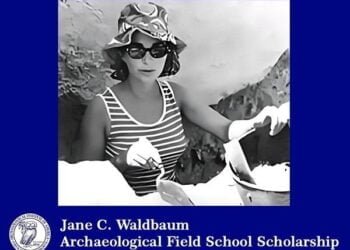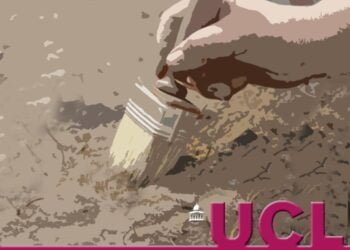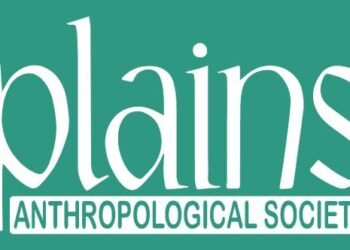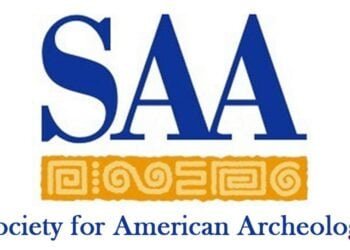
Deadline: 30 Sep 2022
Scope: Fulltime
About UiB
The University of Bergen is a renowned educational and research institution, organised into seven faculties and approximately 54 institutes and academic centres. Campus is located in the centre of Bergen with university areas at Nygårdshøyden, Haukeland, Marineholmen, Møllendalsveien and Årstad.
UiB – Knowledge that shapes society
Through robust and close interaction with the world around us – globally, nationally and locally – we shall be instrumental in building a society based on knowledge, skills and attitudes.
PhD position – Irone Age Archaeology
At the Department of Cultural History there are 29 permanent employees (14 scientific positions, 15 technical/executive positions). In addition, there is a fluctuating number of temporary employees, including 4 (5) PhD positions.
The Department of Cultural history at the University Museum, University of Bergen announces a full-time PhD research Fellowship in Iron Age Archaeology. The position is for a fixed-term period of 4 years. The announced PhD project will be studying societal change in the Early Iron Age as a result of possible changes in the exploitation of resources and use of the high mountain area in this period, as well as studying in which way this forms the basis for intensified exploitation of this area that takes place in the Medieval Period.
Content of the position
The Ph.D. project must study changes within the Early Iron Age society (500 BC-600 AD), based on possible changes in the use of the high mountain area in this period, as well as in which way this forms the foundation for the intensified use of the high mountains which takes place in the Late Iron Age and Medieval Period.
An important question in the project will be mapping in which way this exploitation of the high mountain resources is established and controlled.
Did this intensified use of the high mountains lead to conflicts between different stakeholders as they wished to control these natural resources within a delimited area? In what way may possible east-west connections in the archaeological material be detected in this period? What social, political, and economic arrangements may have been established in this period? It will therefore be natural to analyze the use of resources in the high mountains and study possible connections with local settlements in the lowlands, and in this way put everything in a broader social, political, and economic context.
The prevailing climatic conditions in the high mountains have always been very important, both in terms of when and how these natural resources may have been utilized. Our knowledge about prehistoric climatic conditions, and the consequences they had for exploiting non-agrarian resources, is largely based on cooperation with natural sciences. Therefore, the project should have a clear interdisciplinary perspective.
The announced Ph.D. position shall result in a Ph.D. thesis about the theme, described above. In the project description, applicants may choose the methods and theoretical approaches that they will apply. It is expected that relevant material from the University Museum collection from the period is utilized into the project.
In the final assessment of the applications, both the scientific quality, as well as the basic qualifications, will be emphasised.
Qualifications and personal qualities:
The candidate should hold a Norwegian master’s degree in archaeology (or the equivalent) with a scope of minimum 30 ECTS. The master’s degree must have been awarded before the deadline of the application.
Ability to work independently and in a well-structured manner, and good cooperative skills
Written and oral proficiency in a Scandinavian language and in English
About the PhD position (applies to university PhD positions):
Applicants must have a Norwegian master’s degree, or the equivalent foreign degree within s subject area that is relevant for the project. Applicants without a Norwegian master’s degree, will be assessed according to the current requirements from the Norwegian Agency for Quality Assurance in Education (NOKUT). The master’s degree must have been awarded before the deadline of the application.
The applicant must have the ability to work independently and in a well-structured manner, and good cooperative skills. If two or more of the ranked applicants otherwise are equally qualified, strategic considerations, personal motivation, and personal suitability will be decisive.
Applicants will also be assessed according to the admission requirements of the Faculty of Humanities programme. The extent of the PhD position is 4 years, of which 25 percent comprises obligatory duties associated with the University Museum, e.g., collection management, management of databases, administration, and outreach.
Part of the obligatory duties will be connected to the research group COASTARK, which is coordinated by the University Museum. Participation in relevant excavation projects at the department may also be possible. The employment period may be reduced if the applicant previously has been employed in a recruitment position.
About the research training
PhD candidates must participate in an approved PhD programme at the Faculty of Humanities (managed by the Department of Archaeology, History, Cultural Studies and Religion) within a time limit of three years.
The Faculty of Humanities must approve a final plan for implementation of research training within three months after the date of commencement. It is a condition that you meet the enrolment requirements for the PhD program at the University of Bergen.
The main supervisor will be associated professor Asbjørn Engevik, who has the scientific responsibility for the Early Iron Age archaeological collection at the University Museum.
We can offer:
- A stimulating and challenging working environment
- Position as research fellow (code 1017) with minimum annual salary of NOK 501.200 gross in the state salary scale. For particularly well qualified applicants, higher salary may be considered.
- Enrolment in the Norwegian Public Service Pension Fund
- A position in an inclusive workplace (IA enterprise)
- Good welfare benefits
Your application must include:
- A brief account of your research interests and motivation for applying for the position (maximum 1 page)
- Proposal for your research project (project description) in accordance with the job description below (max 5 pages), and a sketch of how to accomplish the project and disseminate the results
- CV
- A PDF of the master thesis and other scientific publications (max 5)
- Transcripts of marks at BA and MA degree certificates
- The faculty may demand documentation of satisfactory English skills
- Any other relevant certificates/references
- A list of scientific and popular science publications and presentations
- The names and contact information for two reference persons. One must be the main supervisor for the master thesis (or equivalent)
General information:
Detailed information about the position can be obtained by contacting: associated professor, Dr. Asbjørn Engevik, University Museum of Bergen, P.O.Box 7800, NO-5007 Bergen, tel. +47 55 58 31 24, or mobile phone +47 920 23 711, e-mail: asbjorn.engevik@uib.no
The state labour force shall reflect the diversity of Norwegian society to the greatest extent possible.
People with immigrant backgrounds and people with disabilities are encouraged to apply for the position.
We encourage women to apply. If multiple applicants have approximately equivalent qualifications, the rules pertaining to moderate gender quotas shall apply.
The University of Bergen applies the principle of public access to information when recruiting staff for academic positions.
Information about applicants may be made public even if the applicant has asked not to be named on the list of persons who have applied. The applicant must be notified if the request to be omitted is not met.
UiB is subject to the regulations for export control and the regulations can be applied when processing applications for the position.
The successful applicant must comply with the guidelines that apply to the position at all times.


































